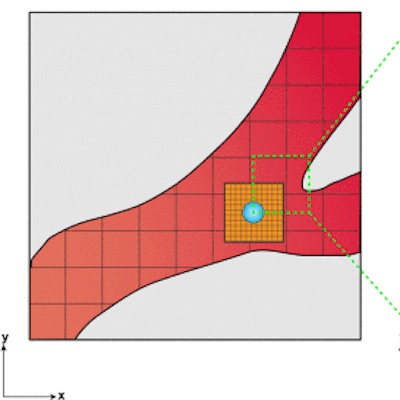High Performance Adaptive Physics Refinement to Enable Large-Scale Tracking of Cancer Cell Trajectory
2022 IEEE International Conference on Cluster Computing (CLUSTER)
Daniel F. Puleri, Sayan Roychowdhury, Peter Balogh, John Gounley, Erik W. Draeger, Jeff Ames, Adebayo Adebiyi, Simbarashe Chidyagwai, Benjamín Hernández, Seyong Lee, Shirley V. Moore, Jeffrey S. Vetter, Amanda Randles

Summary
The ability to track simulated cancer cells through the circulatory system, important for developing a mechanistic understanding of metastatic spread, pushes the limits of today’s supercomputers by requiring the simulation of large fluid volumes at cellular-scale resolution. To overcome this challenge, we introduce a new adaptive physics refinement (APR) method that captures cellular-scale interaction across large domains and leverages a hybrid CPU-GPU approach to maximize performance. Through algorithmic advances that integrate multi-physics and multi-resolution models, we establish a finely resolved window with explicitly modeled cells coupled to a coarsely resolved bulk fluid domain. In this work we present multiple validations of the APR framework by comparing against fully resolved fluid-structure interaction methods and employ techniques, such as latency hiding and maximizing memory bandwidth, to effectively utilize heterogeneous node architectures. Collectively, these computational developments and performance optimizations provide a robust and scalable framework to enable system-level simulations of cancer cell transport.
Citation
Puleri, Daniel F., et al. “High performance adaptive physics refinement to enable large-scale tracking of cancer cell trajectory.” 2022 IEEE International Conference on Cluster Computing (CLUSTER). IEEE, 2022.
